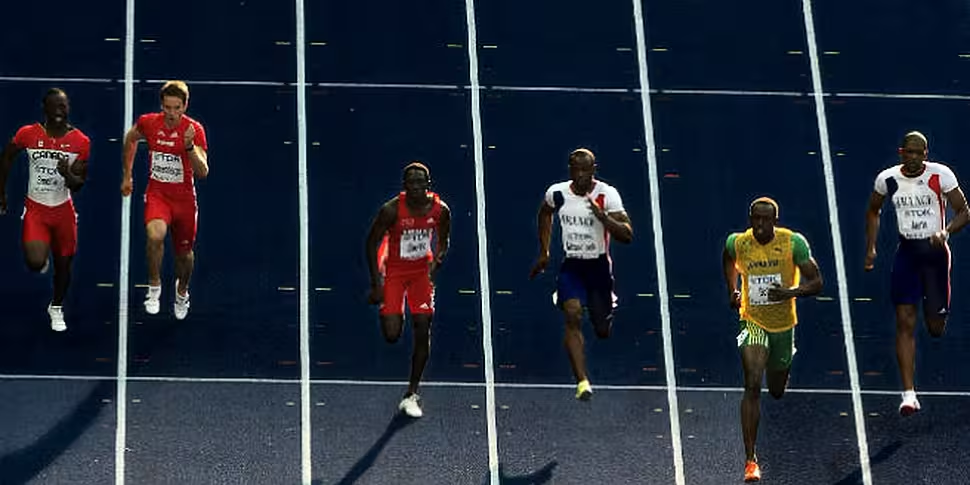©INPHO/Morgan Treacy
Newstalk Magazine is available now for free from the Apple app store.
Athletes are superhuman; their bodies modified to the peak of physical perfection, their dedication and determination an inspiration to all who cheer on their achievements. When a fellow human being pushes their limitations to unchartered boundaries, we all share in that euphoria, our faith in the power of man buoyed. So when it transpires that our sporting gods are in fact lying cheats, it not only destroys the pedestal on which they are perched, it casts a shadow over all celebrated victories, past and potential.
Before he had even crossed the finish line of the Tour de France, cyclist Chris Froome was facing accusations of doping, his exceptional performance causing French coach Antoine Vayer to cite it as ‘almost mutant.’ Froome, no doubt, was prepared for such consternation if he was to be the next occupant of the yellow jersey. His sport is steeped in scandal, its international superstar having left a trail of devastation in his slipstream.
Tour de France Stage 16 20/7/2010, Lance Armstrong with team RadioShack rides in a breakaway ©INPHO/Getty Images

Lance Armstrong was not just an athlete, he didn’t just contribute to a sport and provide his peers with personal bests to beat; to millions he was the face of life itself. Not only had this young man battled cancer, he had somehow mastered it; empowering the masses of fellow sufferers the world over. His impact transcended the sport in which he continued to excel, his army of little yellow wristband wearers publicly proclaiming their allegiance to Lance. His fall from grace and the stripping of his seven Tour de France titles was not merely a marring of the world of professional cycling; it was the destruction of hope for those who needed it the most.
Despite not being disrobed of her four Olympic medals, swimmer Michelle de Bruin will never be free from the stigma of her competitive ban. Her tampered sample, although sufficient to end her career, was not enough to prove the presence of banned substances during Atlanta 1996. But what had once been a source of immense national pride has now become a tainted memory, airbrushed from the annals of Irish sporting history.
Every so often a sportstar comes along that sweeps up the crowd in the palm of his hand. With his nonchalant demeanour and signature poses, Usain Bolt is the man every child wants to emulate in the playground. When news broke of an investigation into doping of Jamaican sprinters, collective breaths were held that the king of the track would remain untarnished. As long as he, the fastest man on earth, was still someone to believe in, the dream was alive. Putting his fans minds at ease in the wake of the scandal Bolt said, “I was made to inspire people and run and that's the gift I have. I know I am clean and I just want to improve the sport and that is what I am going to do."
Perhaps the only way to combat the use of performance enhancers is to regulate them, create a separate league for this new breed of mutant competitor. At least if the playing field is levelled, both the participants and the spectators will know what they are getting. Then it would be up to us who we pin our colours to, the man born of our hopes and expectations or the man born of a lab.
This article originally appeared in Newstalk Magazine for iPad in August, for more details go here.









